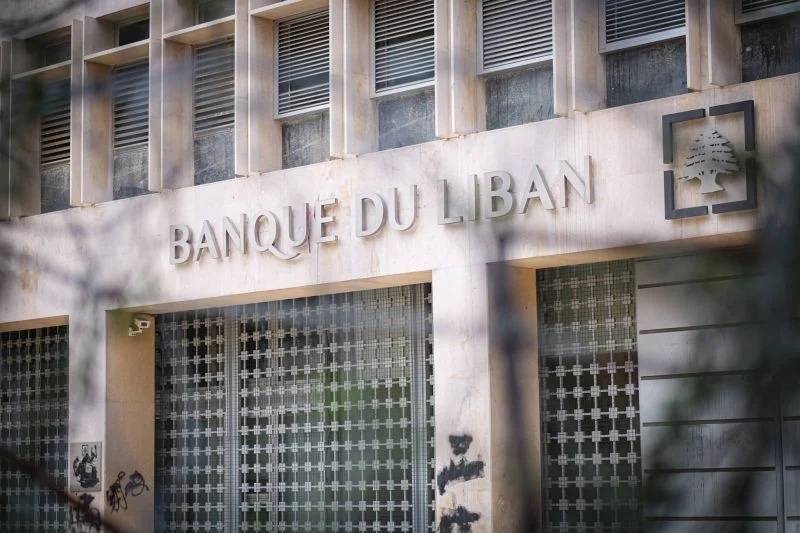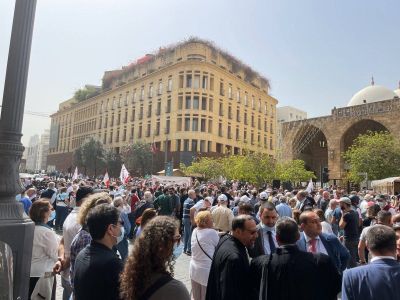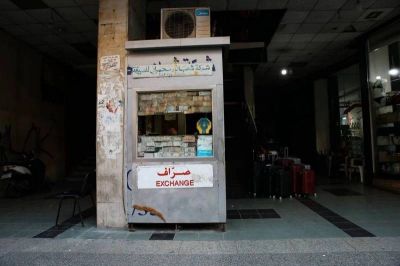
BDL headquarters in Beirut. (Credit: João Sousa/L'Orient Today)
BEIRUT — Caretaker Deputy Prime Minister Saade Chami said in a statement Monday that it is time to pass the capital control law that aims to legalize and standardize banking restrictions put in place since the start of Lebanon’s economic crisis in 2019.
Chami stated that the law is needed “to maintain foreign currency reserves and/or banking sector liquidity, prevent further exchange rate deterioration and help reduce the balance of payments deficit.”
He noted that it is essential that the law not be tied to “specific numbers for transfers and withdrawals, because the economic and banking conditions may change rapidly, which calls for a continuous amendment of the law, and this is undesirable and is not usually done with the required speed.”
The draft law on capital control, which was last modified earlier this year, aims to legalize and standardize banking restrictions put in place at the beginning of the economic crisis in 2019, many of which have until been “discretionary” and “unregulated,” according to Chami. That law’s approval is one of the conditions required by the International Monetary Fund to implement the preliminary agreement reached with Lebanon earlier this year to provide the country with $3 billion over four years.
Chami said that having a valid law governing transfers, withdrawals and the relationship between the bank and the depositor would make the process more regular and transparent. “The presence of restrictions on transfers will reduce import and thus reduce pressure on the exchange rate, especially if this is accompanied by complementary policies, including appropriate financial and monetary policies, and a unified and moving exchange rate that reflects the state of the market,” he said.
The law entails repatriation requirements for importers to return the foreign currency to the Lebanese banking system — meaning they have to put foreign currency in their Lebanese banks — in addition to five percent of their earnings to improve the position of foreign currency in the banking sector, but without placing additional burdens on exporters because they may keep the rest of their export earnings.
Chami added in Monday’s statement that the draft law submitted by the government is “in line with international standards and includes the bases adopted in many countries that imposed restrictions on bank transfers.”
In the absence of a capital control law, billions of dollars have reportedly been transferred outside of the country since Lebanon's unprecedented economic crisis started to take shape.

